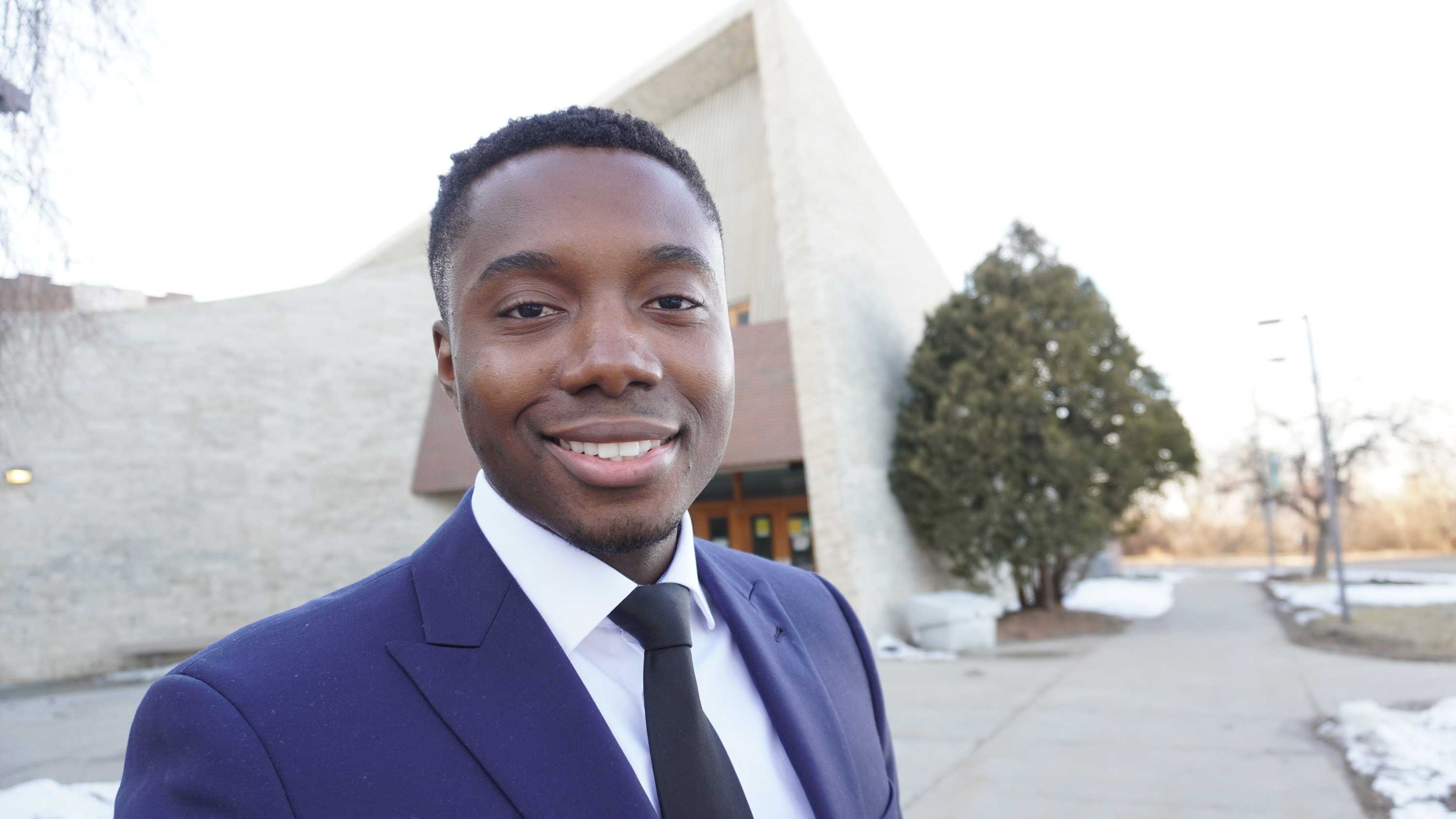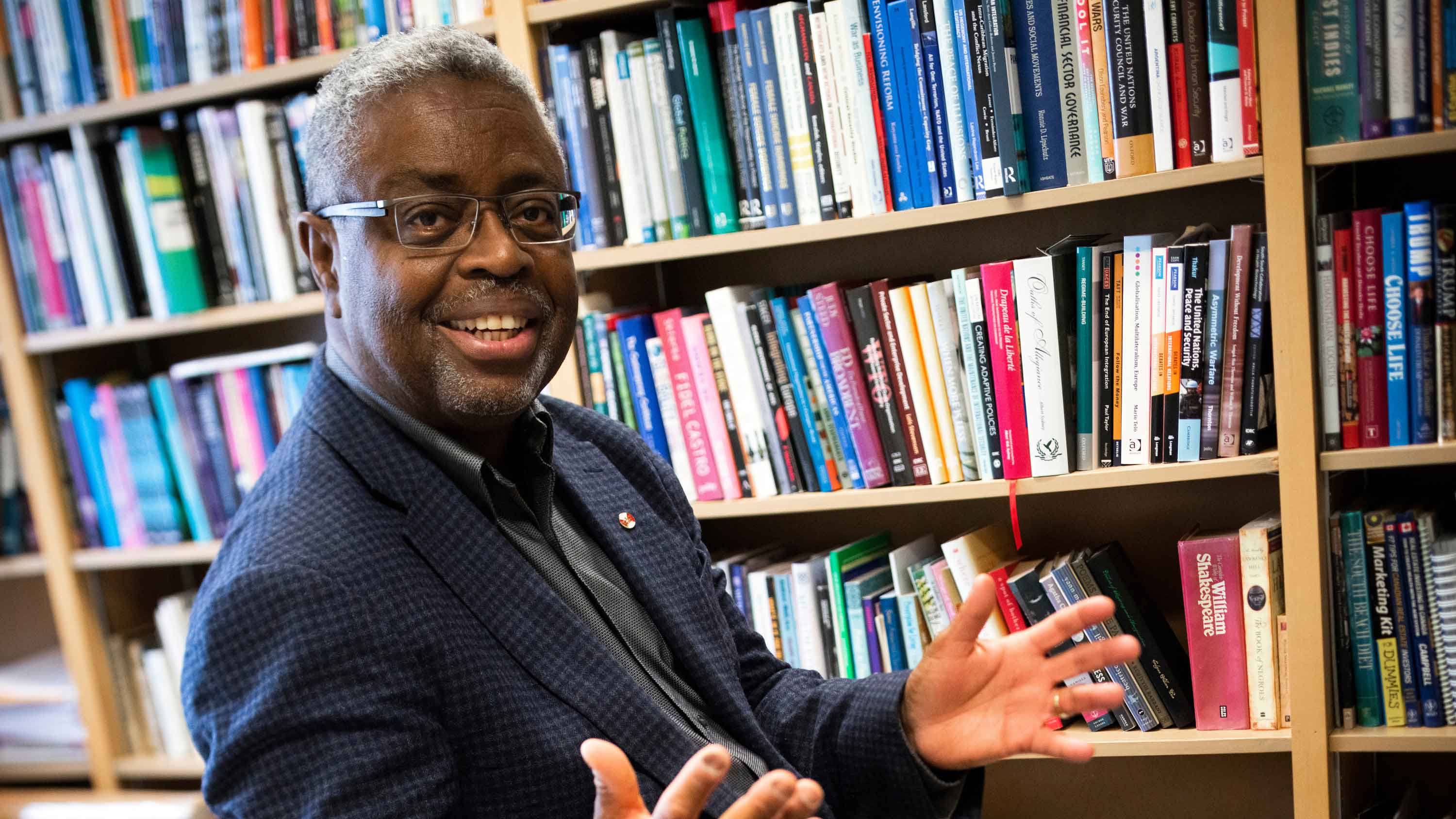The murder of George Floyd last year was a pivotal moment for University of Alberta political scientist Andy Knight.
The expert in international politics is acutely aware of his good fortune throughout his distinguished career. Growing up in Barbados, then immigrating to Canada in his teens, he felt insulated from the worst of the anti-Black racism suffered by many in the United States.
Over the years, he realized “there are a lot of people less privileged than I was, who had barriers that limited their chance of progress,” he said.
As a talented Black artist and academic, Knight found himself achieving a number of firsts, including first Black president of his Students’ Union at McMaster University and first Black chair of the U of A’s Department of Political Science.
“I was happy to be the first to do it, but what happened to all those people who may have been in a better position than I was to reach those heights? It’s really stifling for many Black people.
“So I want to use my voice; I have to speak out,” he said.
That moment of personal reflection—and the desire to speak out—is the genesis of Knight’s new podcast, launching this month.
Called BlackTalk —and billed as “ethnic, modern, inclusive and informative”—it will feature Knight and co-host Zack Penddah, a U of A political science student, interviewing luminous Black cultural figures on issues of racism, diversity, equity and inclusion.
“The podcast provides a unique take on the Black experience to help people of all backgrounds open their eyes, reflect and challenge their thinking,” said producer Katrina Ingram, adding the show aims to explore the problem of systemic racism while celebrating Black achievement.
“Themes range from the history of Black slavery and reparations to personal stories of the Black experience in Canada to the challenges of being a Black female in politics to polite racism, multiculturalism and issues around health care in the Black community.”

The first five episodes drop on May 25, beginning with an interview with the international thought leader and global activist Sir Hilary Beckles exploring the historical links between slavery and the economy.
Others include:
- Author and journalist Cecil Foster on arriving in Canada from Barbados in the 1960s, set against the larger historical context of anti-Black racism in Canada
- Speaker, author, academic and former MP Celina Caesar-Chavannes on her early life and struggles with mental health issues, which she documents in her memoir, Can You Hear Me Now?
- U of A nursing professor Bukola Salami on how racism has affected her life and career
- Former Fort Valley State University president Ivelaw Griffith on systemic racism in universities, the “celebration of whiteness” in our larger culture and the role of funding in holding the status quo in place
The podcasts will also incorporate voices and stories from Black faculty and students at the U of A, said Penddah.
“We may be subject to racism and or discrimination by our peers, and this can create barriers to excellence in our studies and to advancement in the workplace,” he said.
“We would like BlackTalk to highlight some of these issues by shining a light on them and initiating a discourse that will serve to educate members of the majority—conversational, not judgmental.
“Ultimately, we aim to provide a unique take on the Black experience, to help people of all backgrounds open their eyes, reflect and challenge their thinking.”
In addition to the five full-length episodes of between 45 minutes and an hour, there will also be a "mini" episode of eight minutes and 46 seconds, to pay tribute to George Floyd.
Sponsored by the Kule Institute for Advanced Study, BlackTalk is produced entirely at the U of A, with technical editing by Tom Merklinger of the Sound Studies Institute.
For more information, visit blacktalk.ca.
